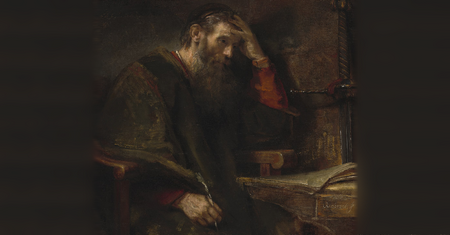It is important to learn how to get along with brethren. This is an effective skill that helps to maintain unity among God’s people. It is especially important when there is any hint of trouble—whether disagreements or other potentially challenging circumstances.
“Pursue peace with all people, and holiness, without which no one will see the Lord” (Hebrews 12:14).
Paul had such a sticky wicket to deal with when he converted an escaped slave, and had to petition the slave’s owner for mercy. Fortunately, the slave owner was himself a Christian, and so there was common ground that could help in resolving the potential conflict.
This is a first principle to consider when dealing with brethren — the common ground you enjoy. We are children of God, pilgrims on the earth, the elect. Our standing with God makes us “heirs — heirs of God and joint heirs with Christ” (Romans 8:17). As part of God’s family, we not only have common interests, but also an imperative to love each other. “We know that we have passed from death to life, because we love the brethren. He who does not love his brother abides in death” (1 John 3:14). The Greek word for love here is the familiar agapao, which is personified in 1 Corinthians 13.
“Love suffers long and is kind; love does not envy; love does not parade itself, is not puffed up; does not behave rudely, does not seek its own, is not provoked, thinks no evil; does not rejoice in iniquity, but rejoices in the truth; bears all things, believes all things, hopes all things, endures all things” (1 Corinthians 13:4-7).
This love exhibits itself in our treatment of others. It is selfless, longsuffering and trusting. When strife occurs within a congregation, it is typical for there to be anger, impatience, frustration and rudeness. This kind of behavior, regardless of the provocation, is indefensible.
Consider how Paul addressed Philemon in his letter about the slave Onesimus. He referred to him as a “beloved friend and fellow laborer” (1). He blessed his brother, “Grace to you and peace from God our Father and the Lord Jesus Christ” (3). He thanked God for Philemon, and prayed for him often (4). He commended Philemon for his love and faith toward God and his brethren (5). A wonderful description of Philemon is given by the apostle in verse 7, “the hearts of the saints have been refreshed by you, brother.”
When finally getting to his point, the apostle was tempered in his words toward his friend. He could have commanded him, but “for love’s sake I rather appeal to you” (9). He spoke diplomatically about Onesimus, “who once was unprofitable to you, but now is profitable to you and to me” (11). He acknowledged Philemon’s claim to the slave, though he wanted Onesimus to stay with him in his work. “But without your consent I wanted to do nothing, that your good deed might not be by compulsion, as it were, but voluntary” (14). He made an appeal based upon their own love for one another. “If then you count me as a partner, receive him as you would me. But if he has wronged you or owes anything, put that on my account” (17-18). Finally, he made it clear that he had confidence in Philemon. “Having confidence in your obedience, I write to you, knowing that you will do even more than I say” (21).
Paul was not being manipulative. He was being kind, and expressing love to accomplish what he believed to be the Lord’s will in the matter. I know of no better example than this to show how we ought to treat one another as brethren.





